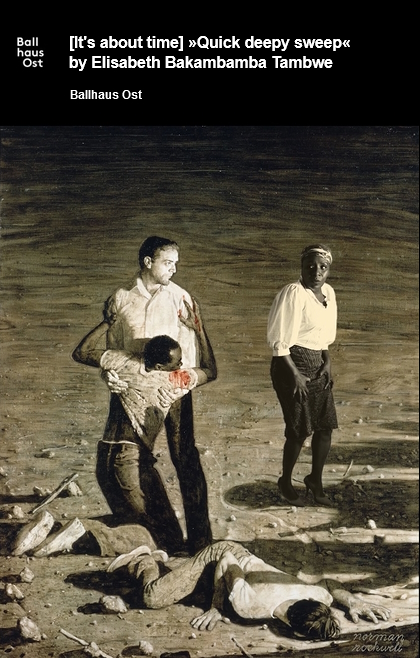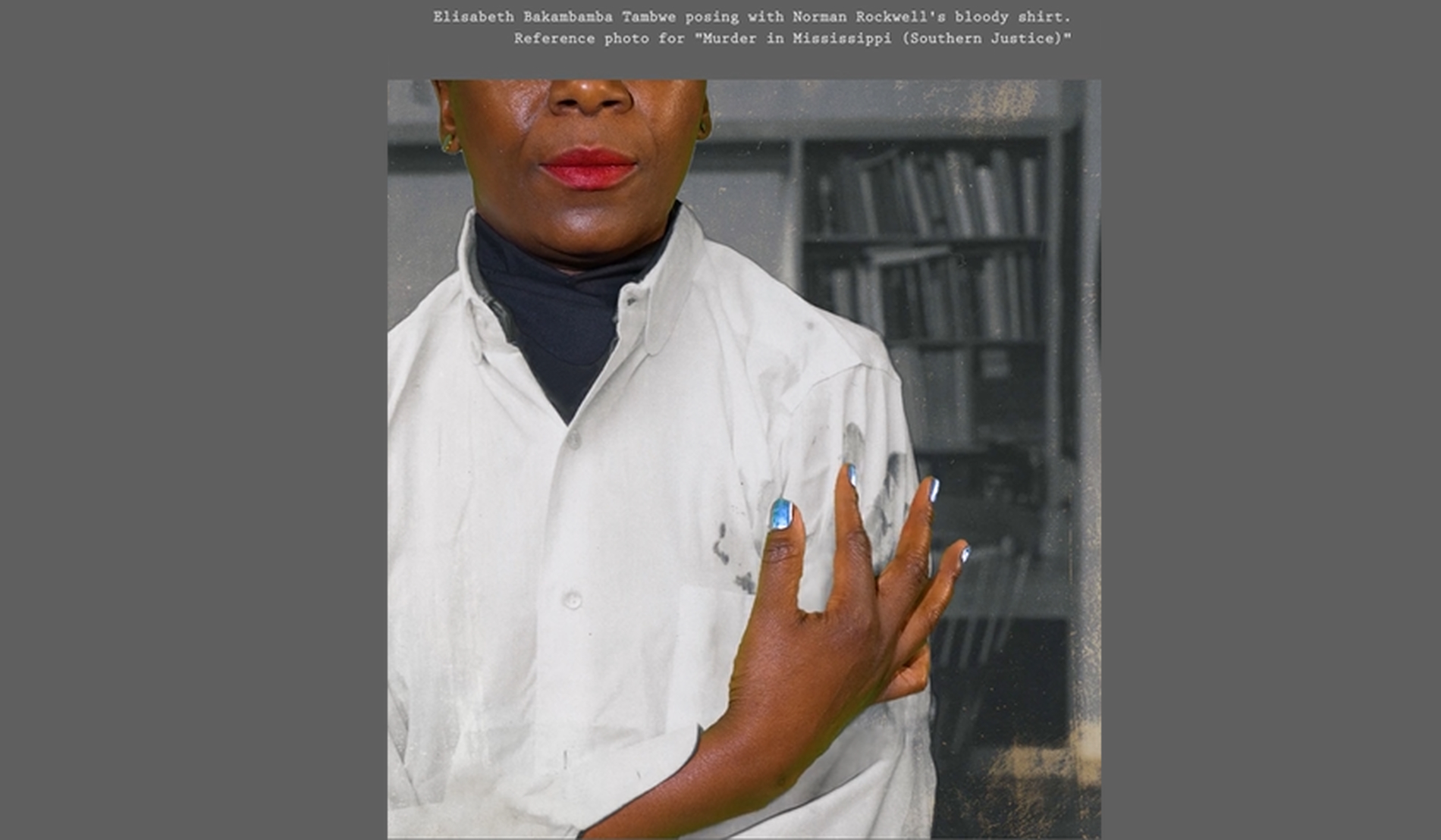What can you do with the egg, if not break it, and what can you do with the eye, if not burst it? (History of the eye // Georges Bataille // 1928)
Human and social memory cannot retain everything: we can only remember some things by forgetting many others. Only a fraction of all testimonies become archives: this residue is nothing more than a construction that crosses borders to feed collective memories. Archives are never closed, they are never complete: each individual, each generation can have its own interpretation of the archives, has the right to re-invent and re-construct its vision of the past. The starting point of Quick deepy sweep is therefore the consultation of archives in order to arm oneself against certain clichés and persistent nauseating images that sometimes remind us of those lazy pop songs that we hate but which, once hammered into our ears (and brains) end up being hummed by most of us, without us even realising it. Later, some will even try to persuade us that they are part of our heritage. And we will be tempted to believe them.
Talking about discrimination or prejudice means talking about images: caricatures, political or propaganda posters, advertising, leaflets, photographs, paintings, etc. Many media have conveyed the representation of the Other as a being stigmatised in his or her difference, be it ethnic, religious, cultural or sexual. They are part of a visual culture that has contributed for centuries to shaping truncated relationships, marked by psychological violence and even extermination.
Yet the visible has no truth. The secret of the visible is that it is only a shadow, an illusory appearance. In this respect, there is a work that plays with this paradox, »Southern Justice« by Norman Rockwell. What is fascinating in this painting is the off-screen. The fact that the threat is off-screen increases the fear it generates. We imagine who is behind these shadows, we put the faces we want on them and they will be different for each of us… Imagining a threat is sometimes much worse than actually seeing the threat. Instead of representing a reality that has already been deciphered, Norman Rockwell decides not to show in order to be more accurate, not to exploit a situation. The work is insanely contemporary.
There is no such thing as an innocent eye. It is always old that the eye approaches its activity, obsessed by its own past and by the old insinuations of the brain. Needs and prejudices govern not only its way of seeing but also the content of what it sees, it chooses, rejects, organises, distinguishes, associates, classifies, analyses, constructs. He grasps and manufactures.
The crucial question is therefore that of the reception of images, the sharing of images and the construction of the gaze. How then can we get rid of these practices of manipulation – which consist in making people hold discourses or imposing a univocal meaning on images – in order to build a free, i.e. informed and critical, relationship to images? In front of each image, we must know how to reverse our position and ask ourselves how this image looks at us… How it thinks about us, how it touches us. The inversion of the positions between the viewer and the object being viewed allows us to enlarge the field of vision of history.
The Quick deepy sweep series (of which »Southern Justice« is the first part) participates in the work of deciphering the question of the hatred of the Other in a historical, cultural and thematic perspective. Because trying to understand what is not apparent, what is not there, in front of us, what is not presented and tangible, seems essential before imagining being able to project ourselves into the future.
TEAM:
ARTISTIC :
ELISABETH BAKAMBAMBA TAMBWE, JOHANNES MOLITORIS, URSULA WINTERAUER, DAVID
PUJADAS BOSCH, BENOÎT JOUAN,
PRODUCTION :
INDRA JÄGER
COMMUNICATION :
FRANCOIS NTAMBUE

EVENT DETAILS:
It’s about time
This Durational Online Festival presents for an unpredictably long period of time artistic works by Elisabeth Bakambamba Tambwe, vorschlag:hammer, vt. corp, Barbara Lenartz, ONCE WE WERE ISLANDS, Markus&Markus Theaterkollektiv, Felizitas Stilleke & Smruthi Gargi Eswar, GRUPO D3 CHOK3 and Club Real.
A production of Ballhaus Ost, curated by Anne Brammen, Monika Gintersdorfer, Tina Pfurr and Daniel Schrader, funded by Hauptstadtkulturfonds.
